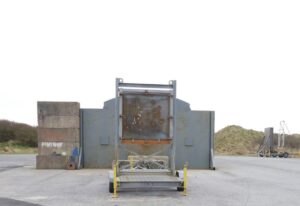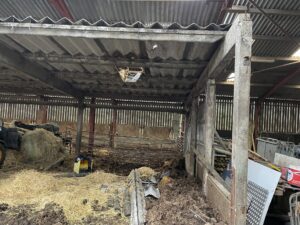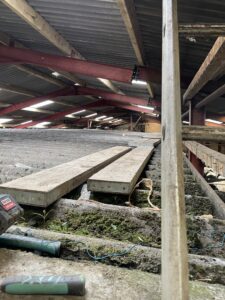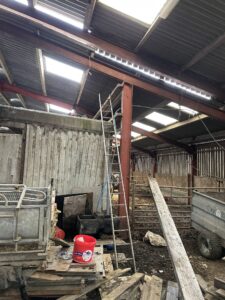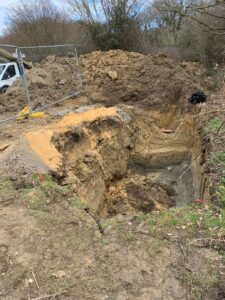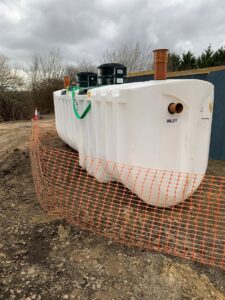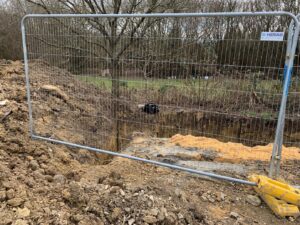April 2025 – A roundup of HSE’s top stories
April saw a number of significant stories from the Health and Safety Executive (HSE), with multiple major prosecutions, including the workplace regulator bringing one of its most complex and lengthy investigations to a conclusion resulting in a £6million fine.
We also prosecuted a health board in Wales, a large chemical manufacturing company, as well as a local council after a man was seriously injured installing a Christmas tree.
And HSE was involved in the prosecution of a former police officer, who was jailed for more than ten years after the deaths of four paddleboarders.
Council fined for multiple failures on Guided Busway
Cambridgeshire County Council was fined £6 million after pleading guilty to serious safety failings on its Guided Busway that led to three deaths and multiple injuries over a ten-year period.
The prosecution follows a long and complex Health and Safety Executive (HSE) investigation, where incidents continued to happen despite regular enforcement action from the regulator.

The council chose to appeal enforcement action instead of acting on concerns.
You can read more here: Council fined for multiple failures on Guided Busway – HSE Media Centre
Health Board fined for failing to manage patients risk of falling
We started off the month by prosecuting Betsi Cadwaladr University Health Board, who was fined £250,000 following failures relating to patient falls in its hospitals.
Three elderly patients sustained falls in 2022 and 2023, all of which resulted in fatalities. The cause of death of two of them was identified as being as a direct result of falling.
Richard Hughes, 84 and Gwilym Williams, 74, fell at Ysybty Gwynedd in Bangor in January and June 2022 respectively, while Nancy Read, who was 93, fell at Wrexham Maelor Hospital in January 2023.
You can read more about this case here: Health Board fined for failing to manage patients risk of falling – HSE Media Centre.
Paddleboard tour leader jailed over deaths of four people
A paddleboard business owner was jailed for 10 years and six months for gross negligence manslaughter following the deaths of four people in 2021.
Nerys Lloyd, 39, from Aberavon, who was the owner and sole director of Salty Dog Co Ltd, was charged with the gross negligence manslaughter of Paul O’Dwyer, 42, Andrea Powell, 41, Morgan Rogers, 24, and Nicola Wheatley, 40, following their tragic deaths following the incident in Haverfordwest Town Weir on 30 October 2021.

A joint investigation by Dyfed-Powys Police and HSE found that Lloyd was not correctly qualified to lead a stand-up paddle board river tour.
You can read more here: Paddleboard tour leader jailed over deaths of four people – HSE Media Centre
Council fined after man falls while installing town’s Christmas tree
Bury Metropolitan Borough Council was fined £200,000 after a man was injured while installing the town’s Christmas tree.
Council employee James Lyth was using a scissor lift to straighten the 20-foot tall Christmas tree when it toppled over with him still in the basket.
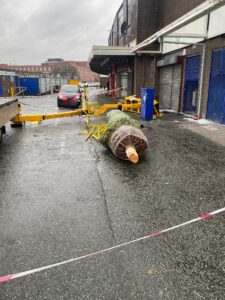
Working at height remains one of the leading causes of workplace injury and death and HSE has detailed guidance on working safely at height.
You can read more about the case here: Council fined after man falls while installing town’s Christmas tree – HSE Media Centre
Company fined £2.5m following uncontrolled acid releases
A chemical manufacturing company was fined £2.5m following two incidents of uncontrolled releases of highly corrosive acids at its site in West Thurrock, Essex.
Industrial Chemicals Ltd pleaded guilty following the incidents in 2020, one of which caused the release of a hydrogen chloride gas cloud that resulted in schools in the area to close.

That incident saw the release of three hundred thousand litres of hydrochloric acid via poorly maintained pipework. As it came into contact with the atmosphere, this created a hydrogen chloride gas cloud which spread to nearby towns.
You can read more here: Company fined £2.5m following uncontrolled acid releases – HSE Media Centre
Defence company fined £800,000 after man shot on MoD range
A defence technology company was fined £800,000 after an employee was shot during testing of ammunition at a Ministry of Defence (MoD) range in South Wales.
The father-of-two was left paralysed below the shoulders after being shot by a 5.56mm bullet fired from a gun, 570 metres away.
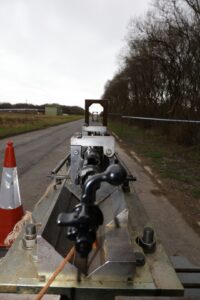
The incident happened on 25 March 2021 during a NATO ammunition quality assurance trial at the MoD Ranges in Pendine.
You can read the full story here: Defence company fined £800,000 after man shot on MoD range – HSE Media Centre
Builder sentenced for unlicensed asbestos removal
A builder was fined after carrying out unlicensed asbestos removal work at a house in Cheadle, Manchester.
Gavin Mutch, trading as G Mutch Developments, had been contracted to carry out renovations at the property including roofing work.
Despite being warned by the customer that asbestos was potentially present in the fascia boards, Mr Mutch proceeded to remove the asbestos-containing materials on 8 September 2022.
Our investigation found Mr Mutch had carried out unlicensed and therefore illegal asbestos removal work. This type of work should only be undertaken by a licensed asbestos contractor with appropriate safety controls in place.
You can read more here: Builder sentenced for unlicensed asbestos removal – HSE Media Centre
April is Stress Awareness Month: tackle stress in the workplace with five steps in five weeks
During April, Britain’s bosses were invited to follow five simple steps to prevent and reduce stress in their workplace.
Over the course of the month, employers were encouraged to focus on one of the campaign’s 5 Rs for each of the five weeks. They are: to Reach out and have conversations, Recognise the signs and causes of stress, Respond to any risks you’ve identified, Reflect on actions you’ve agreed and taken, and make it Routine.
You can read more here: April is Stress Awareness Month: tackle stress in the workplace with five steps in five weeks – HSE Media Centre
Further information:
- The Health and Safety Executive (HSE) is Britain’s national regulator for workplace health and safety. We are dedicated to protecting people and places, and helping everyone lead safer and healthier lives.
- Further details on the latest HSE news releases is available.
- HSE does not pass sentences, set guidelines or collect any fines imposed. Relevant sentencing guidelines must be followed unless the court is satisfied that it would be contrary to the interests of justice to do so. The sentencing guidelines for health and safety offences can be found here.





